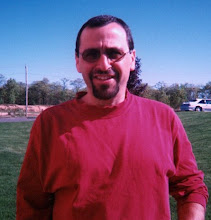Deserts
A desert is that stone in your shoe – the one that makes you stop and take notice. Deserts have always been portrayed as places to which one runs off, places of dearth, places one endures but they are more. A desert cannot be recognized as such while we are in one. Deserts take on their spiritual timbre only when viewed from another vantage, like remembering a dream, or like viewing that amber-now-red stop light in our rear-view mirror. A desert is not defined by what it possesses but by what it offers: a voice, a time, a “not-here and not-now”, a counter moment.
Deserts are not “places”, nor are they comprised of solitude, though their popular images connote such attributes. I have lived through deserts of company, in a crowd, surrounded by the sand and heat, death and desolation of each uttered syllable of conversation.
I have been to deserts and they are nothing if not areas of demarcation, areas which set aside one thing as different than another. Another place, another way of living, another voice, another view. Any place you are not is desert.
I am not certain that one can place oneself in a desert, but rather it is a place in which one finds oneself. Growth, when it occurs, happens like the hands of a moving clock or like some plant tropism.
I have breathed the hot desert air, longing for the certitude a desert can provide. Delimiting, confining, oppressive, yielding nothing, one is free to discover edges of areas of personality not discernible anyplace else. It can bend personality into a pliable conformance, forcing one open like a clam.
There are deserts everywhere. They are the bookmarks of the examined life. They are sand and concrete, with lush verdant green canopies, paneled in mahogany, sweating in crowded un-cooled subway cars, or driving to work, contemplating the birth of a child or contemplating suicide. We carry them like billfolds in our back pockets. We hold them as close and as tenderly as a whisper. We fondle them in pants pockets like that brand-spanking-new penny. Everywhere.
They are our own. We own them. They are the expanse that is the difference between what we know and what we want. Deserts are defined by the “not” and offer absences as substance, in a culture that offers substance as absence.
MB 2003
Deserts are not “places”, nor are they comprised of solitude, though their popular images connote such attributes. I have lived through deserts of company, in a crowd, surrounded by the sand and heat, death and desolation of each uttered syllable of conversation.
I have been to deserts and they are nothing if not areas of demarcation, areas which set aside one thing as different than another. Another place, another way of living, another voice, another view. Any place you are not is desert.
I am not certain that one can place oneself in a desert, but rather it is a place in which one finds oneself. Growth, when it occurs, happens like the hands of a moving clock or like some plant tropism.
I have breathed the hot desert air, longing for the certitude a desert can provide. Delimiting, confining, oppressive, yielding nothing, one is free to discover edges of areas of personality not discernible anyplace else. It can bend personality into a pliable conformance, forcing one open like a clam.
There are deserts everywhere. They are the bookmarks of the examined life. They are sand and concrete, with lush verdant green canopies, paneled in mahogany, sweating in crowded un-cooled subway cars, or driving to work, contemplating the birth of a child or contemplating suicide. We carry them like billfolds in our back pockets. We hold them as close and as tenderly as a whisper. We fondle them in pants pockets like that brand-spanking-new penny. Everywhere.
They are our own. We own them. They are the expanse that is the difference between what we know and what we want. Deserts are defined by the “not” and offer absences as substance, in a culture that offers substance as absence.
MB 2003


0 Comments:
Post a Comment
<< Home